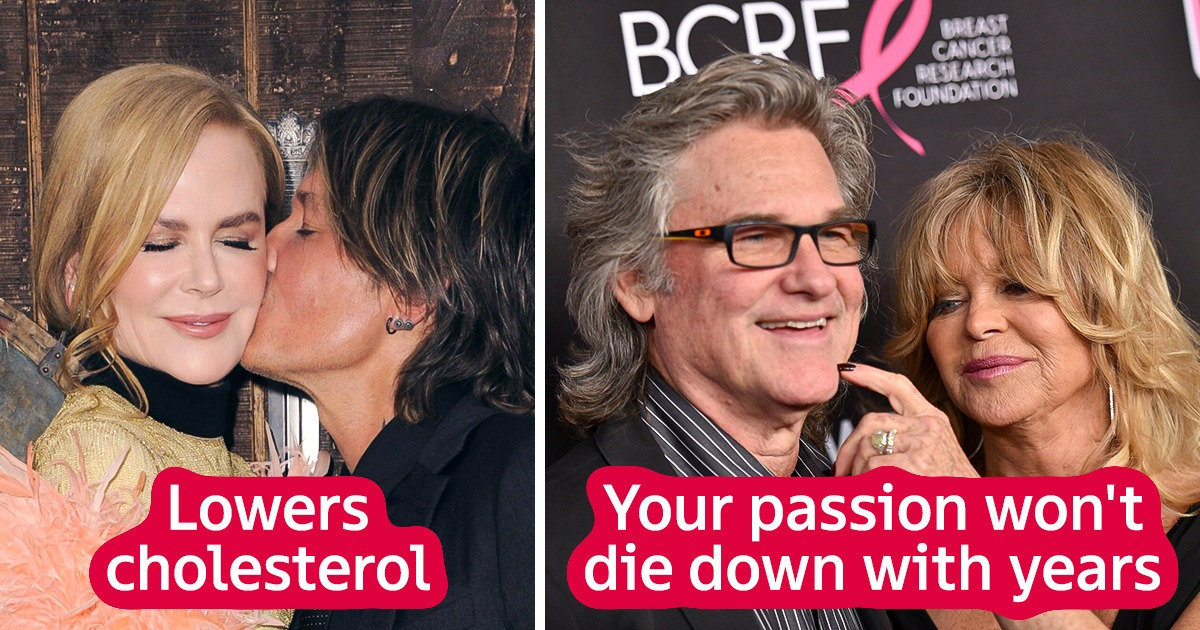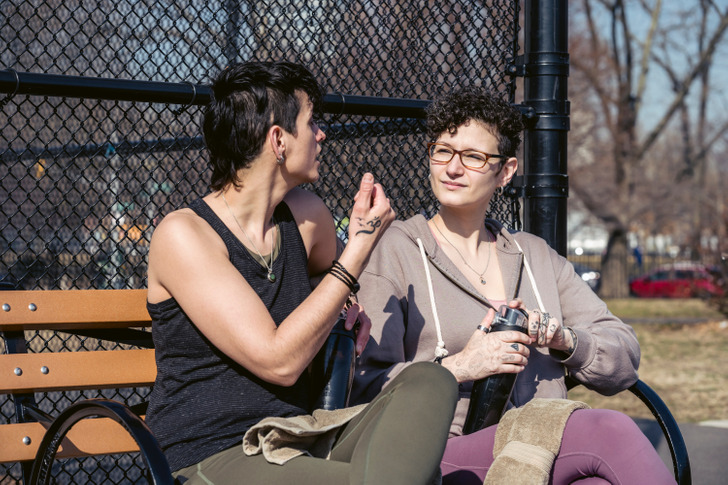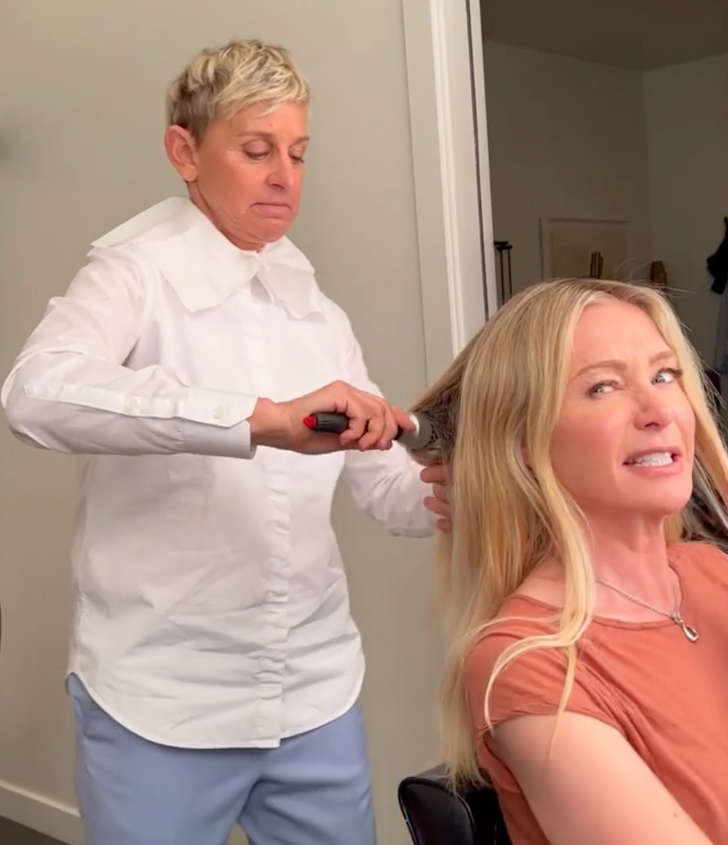16 Curious Love Facts Romantic Movies Won’t Tell You About

Love is one of the most popular plots in books, music, and movies. Thanks to them, we know that “love lives for 3 years”, and Bella Swan had “butterflies in her stomach.” So, it’s even more interesting to find out how love affects us from the scientific standpoint, what makes a relationship happy, and what makes people start acting differently.
We at CHEERY have read some scientific studies and found out that romantic relationships have a lot of surprises for our health.
1. Men take risks for love more often than women.

It turns out that, as a result of evolution, men inherited a risky behavior when their ancestors encountered danger to find partners: they fought predators and competitors. A study showed that today when men find a potential partner, they are ready to take reckless risks: they drive dangerously and get interested in gambling. Scientists found no such thing in women.
2. Women’s voice gets higher.
When women talk to the men they like, their voice becomes higher. It’s believed that high-pitched voices demonstrate femininity to men. This is why there’s nothing strange when a woman starts talking to a different man in a lower voice — it’s probably because he’s less attractive to her.
3. People choose partners by familiar facial features.
Scientists concluded that we prefer people with familiar facial features when choosing a partner. Our brain perceives a familiar image as attractive. This is probably because something that we’ve seen before is safer.
4. Women choose partner by scent.
Scientists found that women can smell partners with higher testosterone levels. Men with higher testosterone levels have more powerful scents. Single men have stronger smells.
Why do single men smell stronger? The smell of the body indicates that the potential partner is viable. Single men are in a state of competition. This is why women choose such partners and avoid married men.
5. Love is stronger in the right amount.
In a relationship, it’s important not to “overlove” your partner. A very frequent reason for divorce is when one of the partners loves the other one too much. In such a relationship, the “giving” partner starts to feel like it’s a one-sided game. According to clinical psychologist Mark B. Borg, Jr. “over-giving is a powerful defense against building mutuality and equality in relationships, disallows the establishment of intimacy and empathy and leaves people in marriage feeling isolated.”
6. People in love choose partners over friends.
Scientists concluded that people at the start of a new relationship lose 2 friends on average. People try to spend more time with their new partners, which is a bad influence on friendships.
7. Love decreases the stress levels.
Scientists found that single people have higher cortisol levels than people in serious relationships. Long-term relationships give partners a feeling of happiness and peace. It happens due to oxytocin and dopamine that improve mood.
8. Love causes addiction.
In terms of neurophysiology, when we are in love, our bodies produce oxytocin, dopamine, serotonin, and vasopressin. These hormones are responsible for the feeling of happiness and joy, and they stimulate the brain when we communicate with the person we love. When we don’t see the love object for a long time, those hormones are not produced, and we feel unhappy. The body physically needs oxytocin, and we rush to the date or at least text our partner. The same hormones are produced in people who are addicted to sugar and eat something sweet.
9. The passion of the first years doesn’t go away forever.

According to scientists, cortisol leaps at the beginning of the relationship even out after 1-2 years. After that, the passionate love goes to a different level and becomes deeper. Scientists compared the MRI scans of couples that have been married for over 20 years to the scans of those that have fallen in love recently, and the results were incredible. It turned out that the dopamine reward system was the same as that detected in the brains of participants in early-stage romantic love. Scientists call routine love “the rustiness phenomenon.” Couples get out of the habit of being incredibly in love, and often for good reasons: work, children, a sick parent. But that type of love can be reignited.
10. Photos of a loved one can relieve pain.
If you’re not feeling well, and your partner is not around, try looking at a photo of them. Scientists believe that it helps relieve the pain. The emotions we feel about our partners work like painkillers. Studies also showed that women take pain way easier when they hold their partner’s hands. It’s a great side effect of love.
11. Kissing improves blood parameters.

Scientists tested the blood of couples in romantic relationships and asked them to kiss more often. 6 weeks later, they found that regular kissing lowered the level of cholesterol in the people and improved their relationship satisfaction.
12. Harmonious relationships improve mental health.
A happy marriage or a stable relationship with a supportive partner has a positive effect on mental health and decreases the risk of depression. Of course, this is true only for a healthy relationship. If it’s not, it’s actually better to be single.
13. Love can make the heart bigger or break it.
No matter what the relationship was like, breaking up is never easy. Overcoming a betrayal or a break-up, our brain uses the same neurological paths and we feel emotional pain like it’s physical. There’s even a syndrome of a broken heart or stress-induced cardiomyopathy when the heart increases in size. It can happen when people break up, get divorced, or grieve someone that passed away.
14. You can fall in love on purpose.
An experiment showed that if 2 strangers look each other in the eye for 4 minutes, asking each other personal questions, they will fall in love with each other. The people got married soon after that. The author of the study, Dr. Elaine Aron, also fell in love with this way.
The results are amazing. There’s a list of 36 personal questions you can ask each other and fall in love with a person.
15. Partners tend to gain weight in relationships.
A study showed that 7 out of 10 men and almost 50% of women claimed to have gained weight since the start of a relationship. And men gain weight during the first year of a relationship. According to experts, the reason for this interesting phenomenon is the tendency of couples for having dinners, cooking, and buy takeout food together. Couples claim that it brings comfort to their relationships.
16. Genes determine how happy partners will be in a marriage.
Scientists watched married couples for 13 years and compared the results to the genotypes of the partners. They found that the subjects with the short 5-HTTLPR alleles were less happy in marriages. And elderly couples show a stronger connection between genes, emotions, and relationship satisfaction. But scientists urge against making quick conclusions about the future with such a partner, “It is really important and beneficial for your spouse to create a beneficial emotional climate in your marriage.”
What do you think about the idea of falling in love with someone on purpose by asking them some personal questions?












